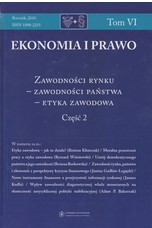Model Flexicurity w Polsce Jako Odpowiedź na Wyzwania Współczesnego Rynku Pracy
Implementation of the Flexicurity Model in Poland as a Response to Modern Labour Market Challenges
Author(s): Magdalena RękasSubject(s): Labor relations, EU-Accession / EU-DEvelopment, Globalization, Labour and Social Security Law
Published by: Wydawnictwo Naukowe Uniwersytetu Mikołaja Kopernika
Keywords: Flexicurity model; Poland; Moder Labour Market; liberalisation of labour laws; EU;
Summary/Abstract: The flexibility of labour markets has been facilitated by the globalisation processes, social and cultural developments, the advancement of technology and telecommunications as well as the fast expansion of the service sector. The resulting labour market developments include the liberalisation of labour laws and the spread of more flexible forms of employment. On the one hand, those changes provide an additional competitive edge to businesses and national economies, while on the other they also create problems with the social security of persons employed on flexible terms. The proposed measure to alleviate these problems is the application of the flexicurity model, which integrates the increased flexibility of employment with a simultaneous enhancement of employee security. The article presents the components of the flexicurity model and attempts to evaluate their advancement in the Polish labour market. This is done against the background of the basic principles, characteristics and benefits of flexicurity implementation. Additionally, the common principles and the system of financing the flexicurity model implementation within the EU are discussed.
Journal: Ekonomia i Prawo. Economics and Law
- Issue Year: 6/2010
- Issue No: 1
- Page Range: 317-330
- Page Count: 14
- Language: Polish

